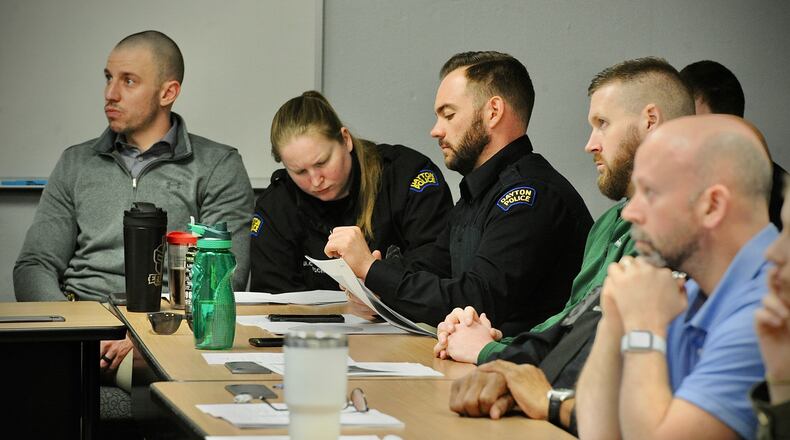Some community members called on the police department to provide more training focused on people with disabilities after a controversial encounter involving a deaf man with cerebral palsy and another involving a paraplegic motorist.
On Wednesday morning, about 18 officers took part in accessibility and accommodation training put on the Adult Advocacy Centers and Deaf World Against Violence Everywhere (DWAVE).
The police department started holding the six-hour training sessions early last month, and all of Dayton’s 342 sworn officers will eventually participate.
The two organizations reached out to the police department about this new training program last summer, as police reform committees discussed and recommended enhanced training for recruits and officers, Dickey said.
Leigha Shoup, deputy director of the Adult Advocacy Centers, said the training will give officers tips about providing accommodations as well as information about the different kinds of accommodations for different kinds of disabilities.
Katherine Yoder, executive director of the organization, said sometimes it is important for law enforcement to think about situations through a “disability lens.”
“Maybe the reason why that person is not compliant and turning around is because they are deaf,” she said. “Maybe the reason the person is not compliant with putting their hands up is because they have cerebral palsy.”
She continued, “The issue isn’t necessarily to change the way you do things, but to offer alternatives to make sure that you’re able to interact with people in a way that will keep you safe, as well as them.”
The police department wants to improve officers’ knowledge and skills when it comes to dealing with citizens with disabilities, including victims and witnesses, he said.
“I do think that the officers should be fully able to handle any of those situations after this training,” said Dickey, who went through the training himself last month.
In the last 16 months, there have been two highly publicized police encounters involving people with disabilities.
Jack Runser, a man who is deaf and has cerebral palsy, alleges he was mistreated and injured by Dayton police in November 2020 because he says he was stopped, handcuffed and transported to a hospital for no valid reason.
Clifford Owensby, a paraplegic man, claims he was mistreated by officers in late September when he was yanked from his vehicle during a traffic stop.
Both men have filed federal lawsuits against the police department and officers, alleging civil rights violations.
Internal police investigations into the Runser and Owensby incidents exonerated the officers involved of allegations of misconduct and excessive force.
About the Author



